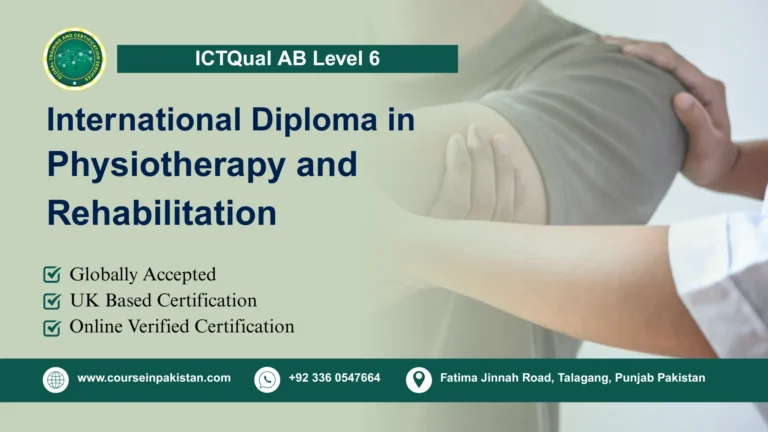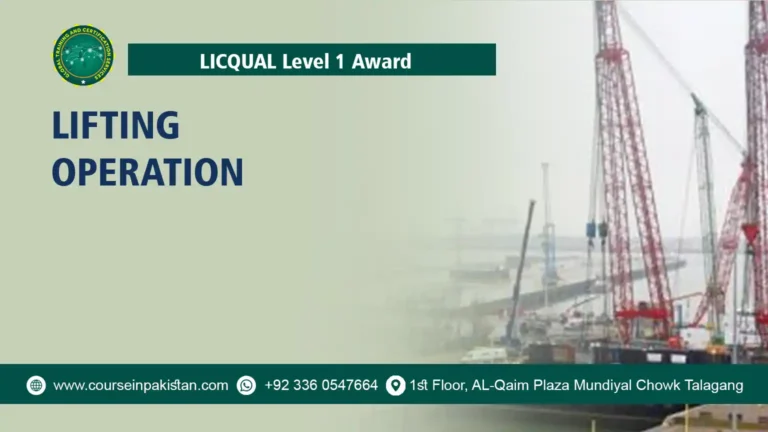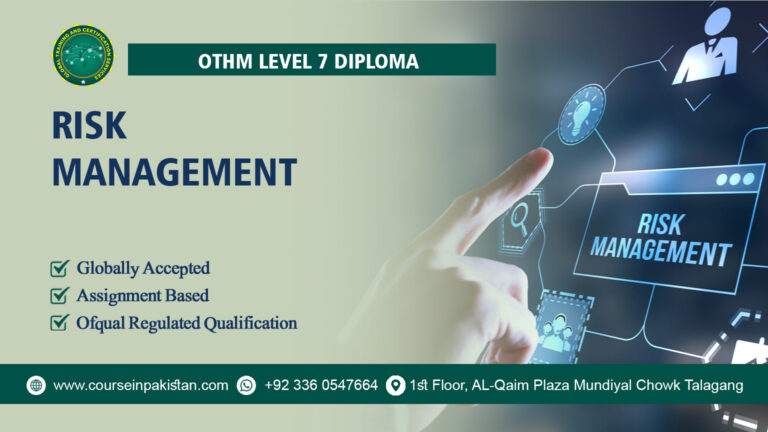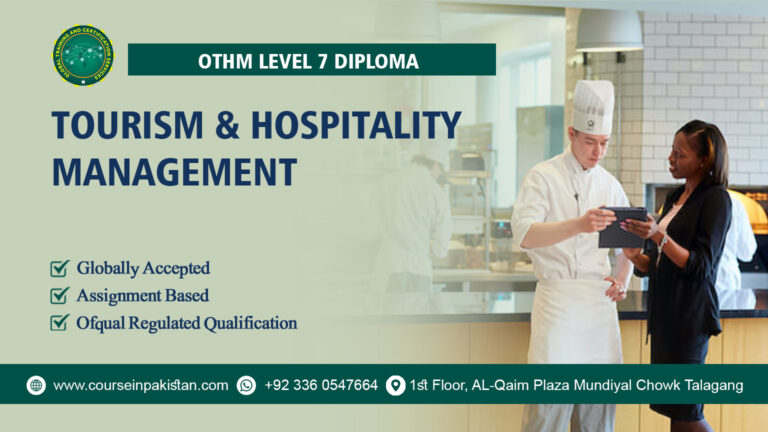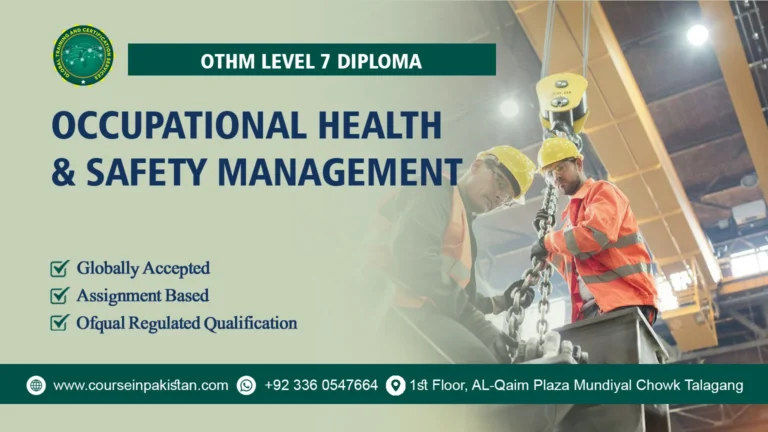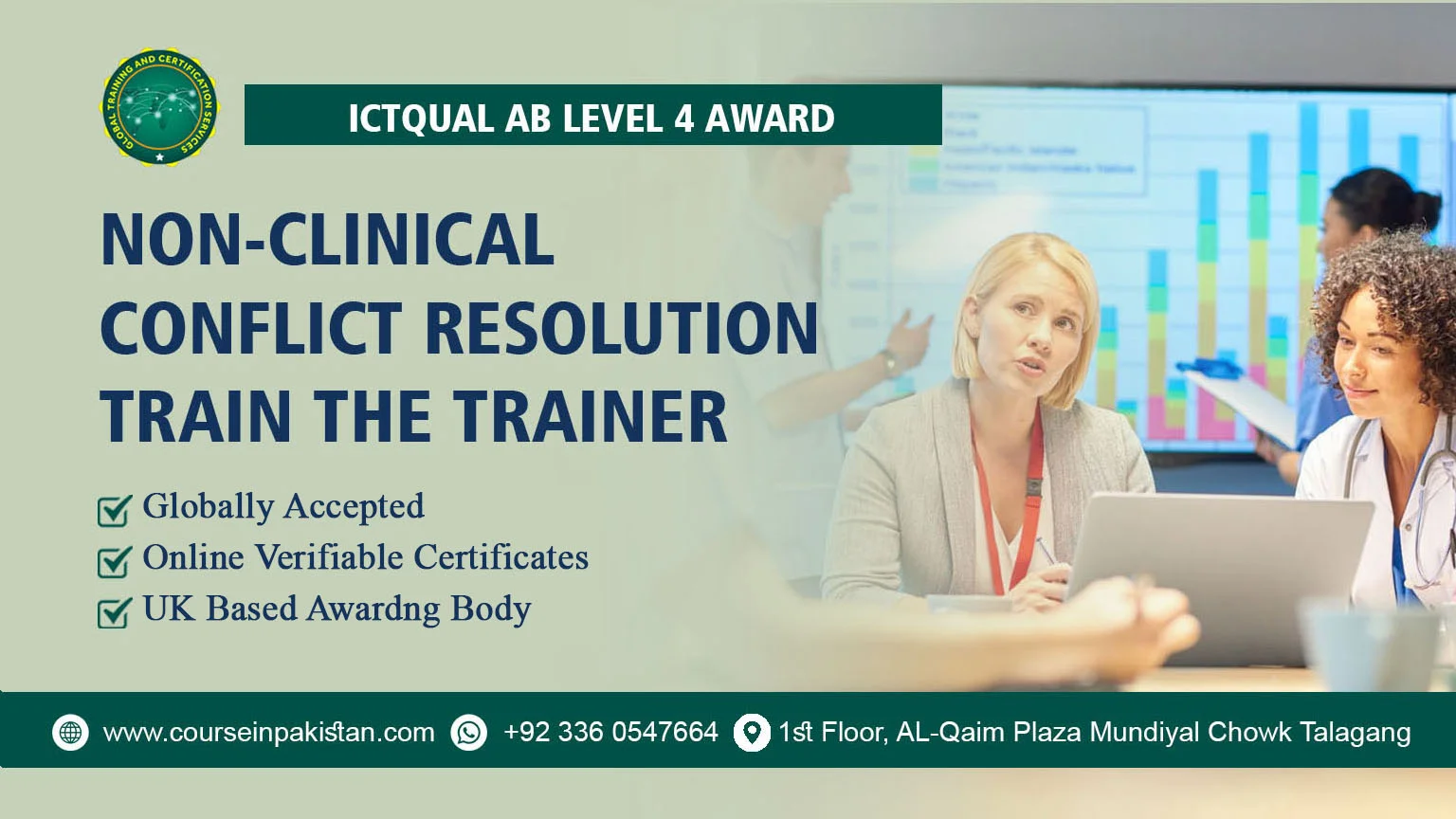
ICTQual Level 4 Award in Non-Clinical Conflict Resolution Train the Trainer
Conflict is inevitable in any environment where people interact, but how conflicts are managed can make a significant difference in organizational harmony and productivity. The Level 4 Award in Non-Clinical Conflict Resolution Train the Trainer equips individuals with the skills and knowledge to effectively train others in resolving conflicts peacefully and constructively in non-clinical settings. This qualification is essential for professionals who want to become proficient trainers in conflict resolution strategies.
Course Introduction
The Level 4 Award in Non-Clinical Conflict Resolution Train the Trainer introduces participants to the principles and practices of conflict resolution. It focuses on preparing trainers to deliver comprehensive training sessions that empower others to understand, manage, and resolve conflicts effectively in workplaces, educational institutions, community organizations, and beyond.
Course Overview
Participants will explore various aspects of conflict resolution, including conflict theory, communication strategies, mediation techniques, negotiation skills, and conflict management frameworks. The course emphasizes practical skills in training delivery, ensuring trainers can facilitate learning and skill development among diverse groups.
Course Benefits
- Expertise Development: Gain advanced knowledge and practical skills in conflict resolution.
- Training Proficiency: Learn effective training techniques to deliver engaging and informative conflict resolution sessions.
- Enhanced Communication: Improve interpersonal communication and conflict management skills.
- Organizational Harmony: Foster a positive and productive work environment by reducing conflicts.
- Career Advancement: Enhance career opportunities in conflict resolution training, HR management, or organizational development.
Course Study Units
The course covers essential study units, including:
- Introduction to Conflict Resolution Training
- Fundamentals of Conflict Dynamics
- Communication Skills for Conflict Resolution
- Mediation and Negotiation Techniques
- Training Design and Delivery
- Assessing Learning and Providing Feedback
- Ethical and Legal Considerations in Conflict Resolution Training
- Practical Application and Role-Playing Exercises
- Developing Training Resources and Materials
- Continuous Professional Development and Growth
Learning Outcome
- Introduction to Conflict Resolution Training
- Understand the purpose and importance of conflict resolution training.
- Identify the benefits of effective conflict resolution skills in various contexts.
- Recognize the role of trainers in facilitating conflict resolution learning.
- Fundamentals of Conflict Dynamics
- Understand the nature and sources of conflicts.
- Identify different conflict styles and behaviors.
- Analyze factors contributing to conflict escalation and de-escalation.
- Communication Skills for Conflict Resolution
- Develop effective communication techniques for managing conflicts.
- Practice active listening and empathy in conflict resolution scenarios.
- Learn strategies for assertive communication and conflict de-escalation.
- Mediation and Negotiation Techniques
- Learn mediation principles and techniques for facilitating constructive dialogues.
- Develop negotiation skills to achieve mutually beneficial outcomes.
- Practice problem-solving approaches in resolving conflicts through mediation and negotiation.
- Training Design and Delivery
- Design conflict resolution training programs based on learning objectives and participant needs.
- Develop engaging training materials and activities to enhance learning effectiveness.
- Utilize adult learning principles and instructional methods in training delivery.
- Assessing Learning and Providing Feedback
- Develop assessment tools to measure participants’ understanding and application of conflict resolution concepts.
- Provide constructive feedback to enhance learning outcomes.
- Use assessment data to evaluate the effectiveness of conflict resolution training programs.
- Ethical and Legal Considerations in Conflict Resolution Training
- Understand ethical principles and professional standards in conflict resolution practice.
- Navigate legal considerations and confidentiality issues in conflict resolution training.
- Uphold ethical guidelines when managing conflicts and facilitating training sessions.
- Practical Application and Role-Playing Exercises
- Apply theoretical knowledge of conflict resolution to practical scenarios and role-playing exercises.
- Enhance problem-solving skills and decision-making abilities in simulated conflict situations.
- Practice conflict resolution techniques and strategies through experiential learning.
- Developing Training Resources and Materials
- Create comprehensive training resources, including manuals, case studies, and visual aids.
- Adapt training materials to meet the specific needs of diverse learner groups.
- Ensure training resources are current, relevant, and accessible for effective learning.
- Continuous Professional Development and Growth
- Engage in continuous learning and professional development opportunities in conflict resolution.
- Reflect on personal strengths and areas for improvement in conflict resolution skills.
- Pursue advanced training or certifications to enhance expertise in conflict resolution training.
These learning outcomes provide a structured approach to developing the knowledge, skills, and competencies necessary for effective conflict resolution training. Participants will be equipped to design, deliver, and assess conflict resolution programs that promote constructive dialogue, enhance communication skills, and foster positive relationships in diverse organizational and community settings.
Who Is This Course For?
The Level 4 Award in Non-Clinical Conflict Resolution Train the Trainer is suitable for:
- HR professionals and managers responsible for conflict resolution and employee relations.
- Team leaders, supervisors, and educators in non-clinical environments.
- Community organizers and mediators.
- Individuals seeking to specialize in conflict resolution training and facilitation.
Future Progression for This Course
Upon completion of the Level 4 Award, participants can consider advancing their expertise through:
- Level 5 Diploma in Leadership and Management: Develop advanced leadership skills to manage conflicts at a strategic level.
- Mediation and Conflict Coaching Certification: Specialize further in mediation or conflict coaching roles.
- Continued Professional Development (CPD): Stay updated with new conflict resolution strategies and best practices through ongoing learning.
The Level 4 Award in Non-Clinical Conflict Resolution Train the Trainer prepares individuals to become effective trainers in conflict resolution, empowering them to create harmonious and productive environments. By equipping trainers with the skills to handle conflicts constructively, this course not only enhances organizational effectiveness but also contributes to a positive workplace culture and community cohesion. Join us in becoming a leader in conflict resolution training and making a meaningful impact on interpersonal relationships and organizational success.


